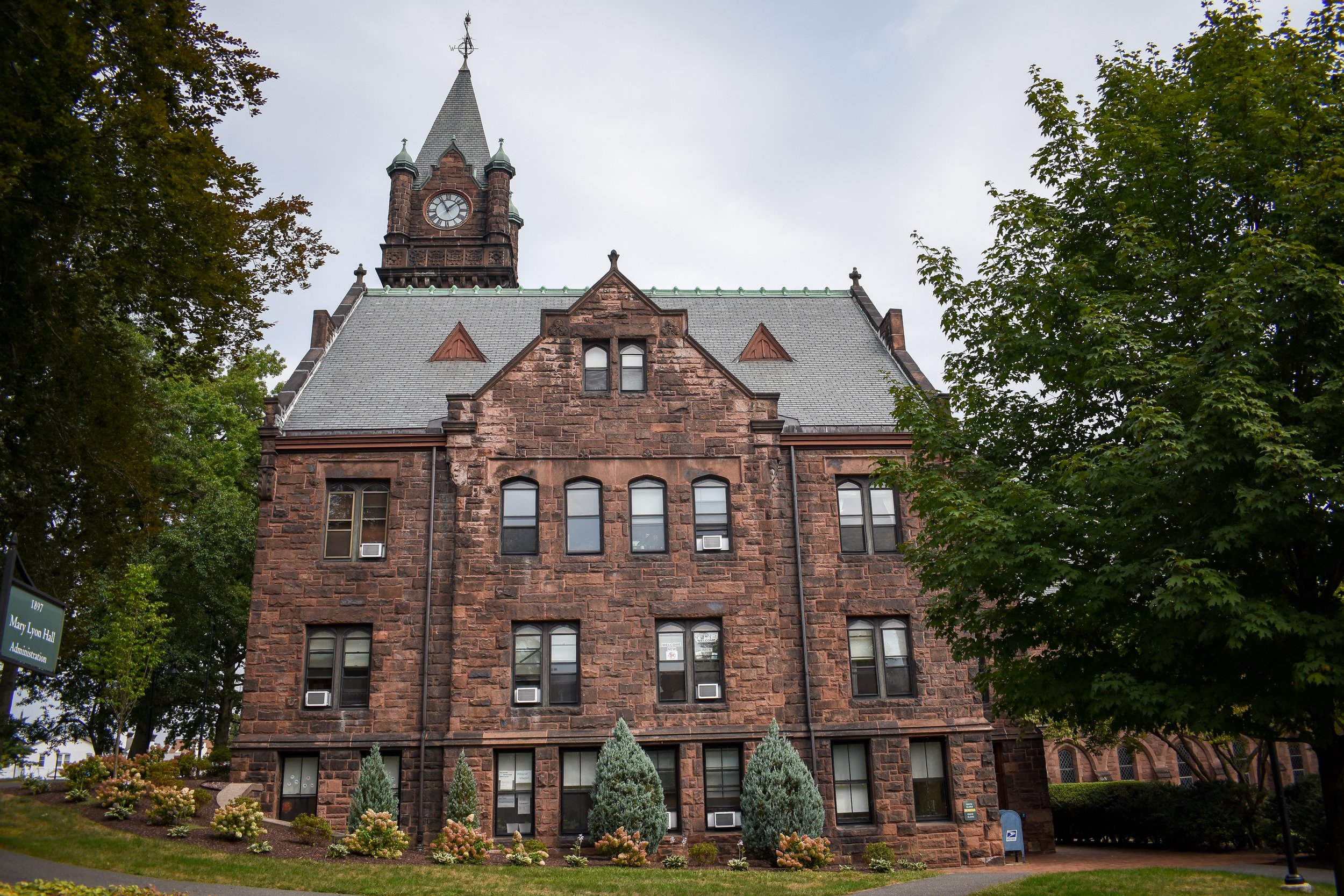Photo by Tzav Harrel '24. Kijua Sanders-McMurtry explained that the College was founded to fight gender-based inequality and therefore should continue to do substantial work in gender-based diversity, equity, and inclusion.
By Norah Tafuri ’25
Staff Writer
On Nov. 29, a workshop titled “Queer and Trans Inclusion in the Classroom and the Workplace” provided students and faculty with an opportunity to build community on campus. The event was described on Embark as one in which “participants [would] explore relevant LGBTQ+ history, contemporary LGBTQ+ dynamics within the educational context — including identity development theories, educational and social trends, and more — engage [with] concepts of allyship and advocacy and have the opportunity to apply these learnings to the Mount Holyoke community past, present and future.”
The featured speaker was Nick Daily, founder and chief executive officer of LuvServedDaily Consulting, an organization that creates spaces of dialogue and learning for colleges, churches and other community spaces. Their work is described on their site as “operat[ing] with the belief that love is at the core and that elevating the dignity and humanity of all is essential to the work that we do.”
Daily has extensive experience in the diversity, equity and inclusion field. “[For me], this is healing work. I don’t feel healed. … But when I get to help invite people into considering themselves and the multiplicity that they have, that is healing work to me,” Daily said in an interview. Over the course of the session, Daily helped participants delve deeply into the principles of community work, alongside a nuanced discussion about gender and sexuality.
The event came shortly after the soft launch of the College’s new Pronoun Policy, which allows students to select from a wider variety of pronouns displayed in their school account. This work was led by Kijua Sanders-McMurtry, vice president for equity and inclusion and chief diversity officer at the College, and implemented with the assistance of Affirming Practices for Trans and Gender-Nonconforming People Working Group.
However, beyond the implementation of policies intended to protect students, Sanders-McMurtry also strives to take the College a step further by creating spaces for critical thinking about gender. They said that before their arrival, “People didn’t really know how to even create safe spaces for us to talk about gender fluidity, [or] gender diversity, what it is to be nonbinary, or agender or [transgender] on campus.” The lack of spaces for discussion is something they have sought to resolve in their time at the College.
Sanders-McMurtry had intended to invite Daily to speak for some time. The two of them described becoming more closely acquainted while sitting on the floor in the back of the room at a DEI conference. Though they had been mutually appreciative of each other’s work at a distance, the event was a moment that marked the beginning of a deeper connection. They exchanged thoughts on their work in DEI, and bonded over shared views surrounding DEI policies.
Despite common misconceptions, Sanders-McMurtry and Daily both agreed that DEI is much more than simply the matter of “checking … [the] boxes” to prevent immediate harm. Sanders-McMurtry attributed this perception of mistake-prevention to be the barrier to achieving actual understanding and care. Rather, DEI “is meant to be reparative. It [is] meant to be restorative. It is meant to be justice-oriented, [and justice is not] a cookie-cutter concept,” Sanders-McMurtry said.
As a gender-diverse women’s college, grappling with how to implement DEI is particularly important. Sanders-McMurtry notes that the College has been on the frontlines to question conceptions of gender. While these conceptions have taken on a different form now than at the College’s founding, “The very fabric of why [the College was] created was to fight gender-based inequity,” Sanders-McMurtry said. “What you end up doing is creating freedom spaces and freedom pathways and freedom dreams that allow you to be more expansive and add your own understanding of where you have been harmed.”
Daily underpinned this point and stressed the importance of understanding the overturn of systems of oppression. “The core work of a gendered power, a gendered space specifically for women, a [gender-diverse] women’s college, is to recognize that gender inequity is being enacted on them. And … that system of gender inequity is also being enacted on … nonbinary people, in ways that perpetuate harm to cisgender [and] heterosexual women as well,” Daily said. Essentially, they supported the idea that liberation work is at the service of everyone; the advancement of one person degrades the oppressive systems that restrict the freedom of all.
The event concluded with a strong emphasis of the policies in place that are intended to protect students and faculty alike from discrimination. As is stated by the College’s website, “Title IX of the Education Amendments of 1972 requires that all educational institutions that receive federal funds or financial assistance prohibit sex discrimination in their education programs and activities.” All complaints relating to sexual misconduct and gender based discrimination can be filed by contacting the Title IX coordinator, a deputy Title IX coordinator or by filling out the online reporting form, which can also be completed anonymously.

